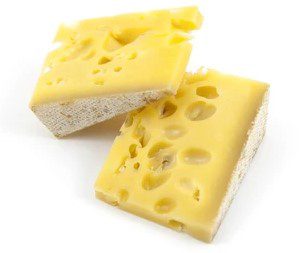

Gruyère cheese can be consumed safely by dogs in small quantities, as it does not contain any ingredients that are toxic to dogs. However, it does contain a high amount of fat and salt, so it should be given sparingly. The cheese should never be the main part of your dog’s diet, and it should only make up a small portion of their snacks. Because Gruyère is highly flavorful and has a pleasing aroma, it may be tempting to share it with your dog, but it should only be done in moderation.
Gruyère is an aged Swiss cheese, known for its nutty and slightly sweet flavor. It is a hard cheese that is straw-colored with occasional holes and a natural rind. It is widely used in cooking, especially in dishes such as Fondue, Quiche Lorraine, and French onion soup. It also has other names such as Gruyère de Comté, Gruyère Français, and Gruyère Suisse. This cheese originated in Switzerland and has been made there for the last 850 years. It is now also produced in other parts of the world such as France, North America, and Australia.
Eating too much Gruyère cheese could lead to nutrition imbalances in your pet, as well as obesity due to its high fat content. It could also cause gastrointestinal upset and diarrhea from too much salt. If your pet has a sensitivity to dairy products, it’s best to steer clear of Gruyère cheese altogether.
The best way to feed your dog and keep their diet balanced is to choose healthier alternatives such as lean proteins and high-fiber foods. Lean proteins like chicken, turkey, and fish are generally low in fat and provide essential amino acids to promote muscle growth. High-fiber foods such as brown rice, whole-grain oats, and barley are high in vitamins and minerals and can help balance out their diet. These alternatives are much healthier and provide more nutritional value than Gruyère cheese.
Gruyère cheese is a popular hard Swiss cheese that is safe for dogs to eat in small quantities, if it is served as a treat and not a main part of their diet. However, it is high in salt and fat, so it should be given sparingly. Lean proteins and high-fiber foods are better alternatives to give your pet as part of an overall balanced diet.
Have you ever given your dog Gruyère cheese? If so, how did they respond?
We'd love to hear your experience with Gruyère cheese for dogs. Plus, if you're looking for more healthy snack ideas, don't forget to check out Way Canina! Thanks for stopping by. Goodbye!